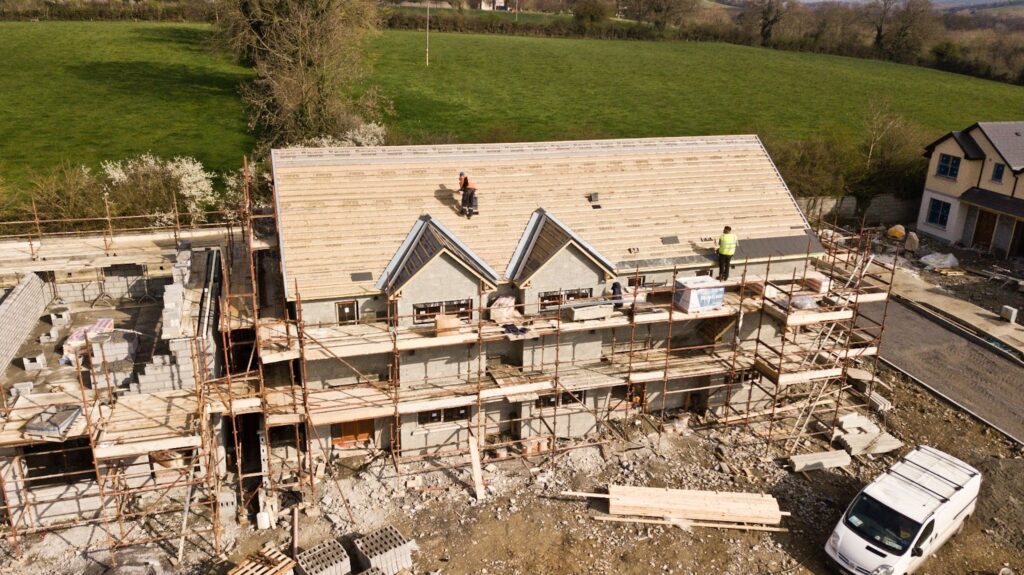Buying a home can be an overwhelming process, especially if you’re new to the world of real estate. But fear not! I’m here to guide you through the ins and outs of home buying in a way that’s easy to understand, even for beginners. Whether you’re a first-time buyer or simply looking to refresh your knowledge, this article is packed with valuable information and practical tips to help you navigate the exciting journey of becoming a homeowner.
One of the first things you’ll need to consider is your budget. It’s crucial to have a clear understanding of how much house you can afford before diving into the market. I’ll walk you through the steps of assessing your financial situation, including factors like income, expenses, and credit score. Armed with this knowledge, you’ll be able to set realistic expectations and avoid any potential financial pitfalls along the way.
Next, we’ll delve into the process of finding your dream home. From identifying your must-haves and deal-breakers to working with real estate agents and attending open houses, I’ll share strategies that will streamline your search and help you find that perfect match. We’ll also discuss important aspects such as neighborhood research, property inspections, and making an offer – ensuring that no detail is left unaddressed.
So whether you’re feeling overwhelmed by all those unfamiliar terms or unsure where to even begin with home buying, rest assured that this article has got you covered. Let’s embark on this journey together and transform “home buying for dummies” into “home buying made easy”.
Understanding the Home Buying Process
Buying a home can be an exciting yet overwhelming experience. With so many factors to consider and decisions to make, it’s important to understand the home buying process thoroughly. In this section, I’ll break down the key steps involved in purchasing a home, making it easier for you to navigate through this journey.
- Determine your budget: Before diving into the market, it’s crucial to know how much you can afford. Evaluate your financial situation and calculate a realistic budget that includes down payment, closing costs, and monthly mortgage payments.
- Get pre-approved for a mortgage: Meeting with a lender and getting pre-approved will give you an idea of how much money you can borrow. This step helps streamline the buying process by demonstrating your seriousness as a buyer.
- Find a real estate agent: Working with an experienced real estate agent can save you time and stress while searching for your dream home. They have access to listings, knowledge of local markets, and negotiation skills that can benefit you throughout the process.
- Start house hunting: Armed with your budget and preferences, begin exploring homes that meet your criteria. Attend open houses, schedule private showings, and utilize online platforms to narrow down your options.
- Make an offer: Once you find “the one,” work closely with your real estate agent to submit an offer that reflects both market conditions and what you’re comfortable paying. Negotiations may take place before reaching an agreement with the seller.
- Perform inspections and appraisals: To ensure there are no hidden issues or surprises with the property, arrange for professional inspections such as structural assessments or pest inspections. Additionally, lenders often require appraisals to verify the value of the property.
- Secure financing: Finalize your loan details by working closely with your lender on paperwork requirements such as providing income verification documents or additional information they may need.
- Review and sign the contract: Once all contingencies are met, carefully review the purchase agreement with your real estate agent or attorney before signing it. This legally binds you to the transaction.
- Close on the property: On the agreed-upon closing date, you’ll meet with various parties involved, including attorneys, lenders, and sellers, to finalize the purchase. This typically involves signing numerous documents and paying closing costs.
- Move in and enjoy your new home: After completing all necessary paperwork and receiving the keys to your new home, it’s time to celebrate! Take a moment to settle in and start creating memories in your new space.
Remember, each home buying journey is unique, but having a basic understanding of these steps can help you navigate through the process more confidently. Don’t hesitate to seek guidance from professionals along the way as they can provide valuable insights specific to your situation.
Determining Your Budget and Financing Options
Introduction
When it comes to buying a home, one of the most crucial steps is determining your budget and exploring financing options. This will help you understand how much you can afford to spend on a property and identify the best ways to fund your purchase. In this section, I’ll guide you through the process of assessing your budget and exploring different financing avenues.
Assessing Your Budget
Before diving into the world of home buying, it’s essential to know how much you can comfortably afford. Here are some key factors to consider:
- Income: Calculate your monthly income after taxes. Remember to include any additional sources of income such as bonuses or rental properties.
- Expenses: Evaluate your current expenses, including bills, debt payments, groceries, transportation costs, and discretionary spending.
- Savings: Take a look at your savings account balance and determine how much you’re willing to allocate towards a down payment or closing costs.
- Debt-to-Income Ratio: Lenders often assess borrowers based on their debt-to-income ratio (DTI). To calculate this ratio, divide your total monthly debt payments by your gross monthly income. Aim for a DTI below 43% for better loan eligibility.
By analyzing these factors, you’ll have a clearer understanding of what price range is realistic for purchasing a home without straining your finances.
Exploring Financing Options
Once you have an idea of your budget, it’s time to explore various financing options available in the market:

- Mortgages: The most common way people finance their homes is through mortgages offered by banks or lenders. Mortgages allow buyers to borrow money over an extended period while paying interest on the loan amount.
- Down Payment Assistance Programs: Some government agencies and non-profit organizations provide assistance programs that offer grants or low-interest loans for down payments or closing costs. Research and see if you qualify for any of these programs.
- Credit Unions: Consider joining a credit union as they often offer competitive interest rates on mortgages compared to traditional banks.
- Private Financing: In some cases, individuals or private investors may offer financing options for homebuyers who don’t meet the strict criteria of banks or lenders.
Remember to compare interest rates, loan terms, and fees associated with each financing option before making a decision. It’s advisable to consult with a mortgage professional who can help you navigate through the complexities of different loan products.
In conclusion, determining your budget and exploring financing options are crucial steps in the home buying process. By carefully assessing your financial situation and researching different avenues for funding, you’ll be well-equipped to make informed decisions when purchasing your dream home.
Researching Neighborhoods and Choosing the Right Location
When it comes to buying a home, one of the most important factors to consider is the neighborhood and location. After all, you want to find a place that suits your lifestyle and meets your needs. Here are some key steps to help you research neighborhoods and choose the right location:
- Define your priorities: Start by making a list of what matters most to you in a neighborhood. Are you looking for good schools, access to amenities, or proximity to work? Knowing your priorities will help narrow down your options.
- Conduct online research: Utilize online resources such as real estate websites, community forums, and local government websites to gather information about different neighborhoods. Look for details on crime rates, school ratings, transportation options, and nearby amenities.
- Visit potential neighborhoods: Take the time to visit the neighborhoods on your shortlist in person. Walk around during different times of day to get a sense of the atmosphere and observe any potential concerns like noise levels or parking availability.
- Talk to locals: Strike up conversations with people who live in the area you’re interested in. They can provide valuable insights into what it’s really like living there – from safety concerns to community events.
- Consider future development plans: Check if there are any upcoming development projects or infrastructure improvements planned for the area. This can impact property values and quality of life over time.
- Evaluate affordability: Determine whether the cost of living in a particular neighborhood fits within your budget constraints. Research median home prices, property taxes, and other expenses associated with living in that area.
- Assess commute times: If commuting is part of your daily routine, evaluate how long it would take you to travel from each potential neighborhood to work or other frequent destinations using various transportation modes.
- Seek professional advice: Consult with a local real estate agent who has expertise in the areas you’re interested in. They can provide additional insights, market trends, and help you navigate the home buying process.
Remember, choosing the right neighborhood is a crucial part of finding your dream home. By doing thorough research and considering your priorities, you’ll be better equipped to make an informed decision that suits your needs and lifestyle. Happy house hunting!
Finding a Real Estate Agent to Guide You
Introduction
When it comes to buying a home, having the right real estate agent by your side can make all the difference. A knowledgeable and experienced agent can help navigate the complex process, provide valuable insights, and ensure you make informed decisions. In this section, I’ll share some tips on finding the perfect real estate agent to guide you through your home buying journey.
Research and Referrals
One of the best ways to find a reliable real estate agent is through research and referrals. Start by asking friends, family members, or colleagues who have recently bought or sold a property for recommendations. Their personal experiences can give you an idea of what to expect from different agents in your area.

Additionally, take advantage of online resources such as real estate websites, forums, and social media platforms. Read reviews and testimonials from past clients to gauge their satisfaction levels. Look for agents with positive feedback regarding their communication skills, market knowledge, negotiation abilities, and overall professionalism.
Interview Potential Agents
Once you have gathered a list of potential agents, set up interviews to get a better understanding of their expertise and compatibility with your needs. Prepare a list of questions that cover important aspects like experience in the local market, familiarity with specific neighborhoods or property types you are interested in, availability for showings and meetings, and any additional services they offer.
During these interviews, pay attention not only to their answers but also to how well they listen to your concerns and communicate their strategies for helping you achieve your goals. Remember that chemistry matters – choose someone who makes you feel comfortable and confident throughout the process.
Verify Credentials
Before finalizing your decision on which agent to hire, it’s crucial to verify their credentials. Check if they are licensed in your state by contacting the appropriate regulatory body or searching online databases. Look for any disciplinary actions or complaints filed against them as well.
Furthermore, consider working with agents who hold additional certifications or designations, such as Accredited Buyer’s Representative (ABR) or Certified Residential Specialist (CRS). These credentials demonstrate their commitment to professional development and specialization in specific areas of real estate.

